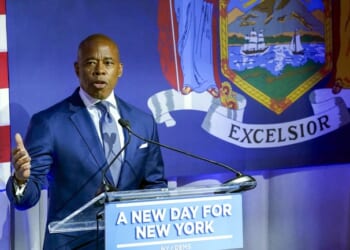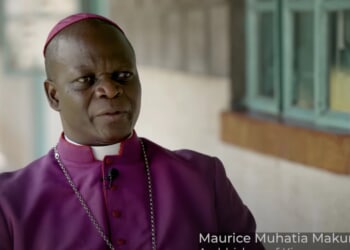Peter Franklin is an Associate Editor of UnHerd.
Andy Burnham isn’t the only blast from the past haunting his party conference. There’s another ghost beginning to take corporeal form and his name is Boris Johnson. To be fair to the former prime minister, he hasn’t said nearly as much as Burnham to undermine his current party leader – but then, he hasn’t had to: the polls speak for themselves.
Just a little re-cap as to where we currently stand: the latest YouGov MRP shows the Conservative Party losing two-thirds of its MPs (and that, of course, is after losing two-thirds of the MPs we had before last year’s general election).
What’s more, this is one of the less pessimistic polling scenarios. Over the weekend, Ipsos put us on a miserable 14 per cent of the vote, the lowest level in the company’s long history. And don’t forget, last week’s shocker from Find Out Now, which put us in fourth place, two points behind the Liberal Democrats.
Of course, a lift for Ed Davey following his party conference doesn’t quite spell doom for Kemi Badenoch. But if there’s no comparable boost to Tory fortunes following her conference, then that would be a very different matter. If we’re not making progress by Christmas, then it’s time to hit the red button.
It’s worth remembering that panic is a survival mechanism. When you’re facing certain death, suddenly doing something – indeed, just about anything – is a better survival strategy than just sitting there. Which is why, for the first time, I can see a path back for Boris Johnson. It isn’t, of course, a very wide path (strait is the gate and narrow is the way) but a greased piglet might just about manage it.
For a start, he doesn’t need a credible plan for Tory victory at the next general election; not when the immediate challenge is basic survival as a major political party. The priority is to climb out of the extinction zone and back to the sort of vote share that Rishi Sunak secured in 2024. #
Johnson has the potential for that, at least. Back in May, polling from More in Common showed that he would, as leader, boost Tory support by the required margin, largely at the expense of Reform UK.
OK, if that’s the case for bringing back the blond beast, what would it take to make it happen?
The first hurdle is one that he shares with Burnham: the need for a seat before the next leadership election. That, in turn, requires an absolute banker of a by-election, because losing would be unthinkable. So with Reform riding high, is there anywhere in the country where a Conservative candidate is sure to win?
Going by the 2024 results, the safest Tory seat is Richmond and Northallerton, with a majority of 12,185. So might the sitting MP make way for Johnson? Er, no – not when the incumbent is a certain Sunak.
Even if Rishi did decide to quit Yorkshire for California, there’s no guarantee that Reform UK wouldn’t snatch the seat. The Nowcast model currently shows Reform in a strong second place — and that’s with the Sunak incumbency factor and without any anti-Boris backlash.
The only safe by-election for Boris would have be in a Tory-held constituency where both Reform and the Lib Dems are in a weak starting position. But is there anywhere in England where such conditions apply? As it happens, there is! There’s a clutch of seats in North West London where local Tories are doing unusually well.
Especially promising is Harrow East, where Nowcast currently has the Conservatives on 51 per cent, Labour on 17 per cent, Reform on 13 per cent, and the Lib Dems on six per cent. Furthermore, it’s not far from Johnson’s old stamping ground of Uxbridge. If the sitting MP, Bob Blackman (who celebrates his 70th birthday next year) decided to retire, it would be hard to think of a more winnable by-election for our once and future king.
Of course, Blackman also serves as the Chairman of the 1922 Committee… which reminds me of alternative way in which Johnson might become eligible to stand for the leadership: a change in the rules. If he were allowed to lead the party from outside the Commons – perhaps as a peer – then he could wait until the next general election to find and fight a Commons seat. I’ll admit this would look a little desperate. But, as mentioned, we are desperate.
Assuming that special arrangements of some sort are made, could Johnson defeat Robert Jenrick and other leadership rivals? Yes – if there are more polls that demonstrate that only Boris can claw back enough support from Reform to guarantee Tory survival.
But that still leaves the greatest single obstacle to a Johnson comeback: Johnson himself. It’s not just the familiar flaws, but his record in office. Above all, there’s the “Boriswave“, the record surge in non-EU immigration named after the Prime Minister who let it happen. To mix my seafaring metaphors, how can Boris free himself from that albatross?
Well, not by means of his usual blather. He tried it on last week in his interview with Harry Cole. Challenged on the numbers, he referenced the exceptional influx of Ukrainian refugees and the Hong Kongers fleeing Xi Jinping’s oppression.
But as he chuntered away there was a chart displayed behind him showing that these two sources only account for the foam on the Boriswave. The same applies to the number of imported doctors and nurses. And as for the argument that the Boriswave was an economic necessity, one only has to look at the level of worklessness among Britons
(and among recent migrants, for that matter) to see that isn’t true.
So is there any way that Boris can escape the weight of his legacy? There is, but he’s not going to like it.
He’s going to have to admit that mistakes were made. Then, he’s going to have to apologise. And, finally, he needs to blow the lid on the whole sorry business – explaining exactly how and why it all went so horribly wrong. That’s something that Badenoch and the 2024 leadership contenders should have done in the wake of the general election (and, indeed, what she promised to do).
Instead they chose to move swiftly on in the false name of party unity. As a result, the dirty laundry of our final five years in power festers away, poisoning Badenoch’s leadership and choking off any chance of a Tory recovery. Far from avoiding the bitterness of recrimination, we’ve outsourced it to Reform UK instead – who’ve used it to fuel their rise at our expense.
Yes, we’ve suppressed the vicious internal conflicts that characterised our previous period in exile from 1997 to 2010, but we’re also missing out on the soul-searching that opened the way to the detoxification of the Tory brand. Today, we need to embark on a similarly cathartic, if painful, process. Only this time, we can’t afford to take so long about it, not with Reform breathing down our necks.
If anyone can accelerate the process, it’s Johnson. Firstly, he was there at the centre of government and knows where the bodies are buried. Secondly, he has the energy to compete with Nigel Farage for political attention. And thirdly, he won’t mind sowing the necessary discord – after all, he’s done enough of that in the past.
Where he’s likely to fall short, however, is the other necessary element: his willingness to start with a full admission of his own part in the Conservative Party’s downfall.
Such a degree of humility might strike his critics as entirely beyond the realms of possibility. Then again, we’re going to need a miracle anyway; it might as well be that one.

![Scott Bessent Explains The Big Picture Everyone is Missing During the Shutdown [WATCH]](https://www.right2024.com/wp-content/uploads/2025/11/Scott-Bessent-Explains-The-Big-Picture-Everyone-is-Missing-During-350x250.jpg)














